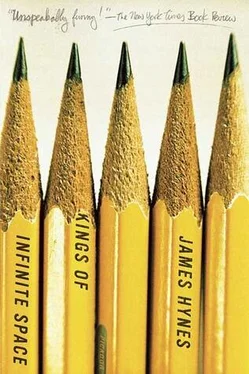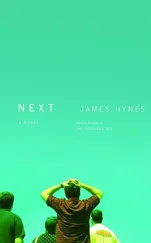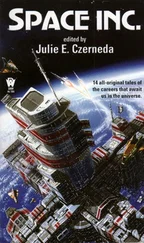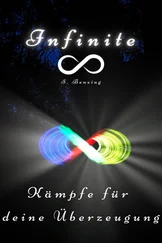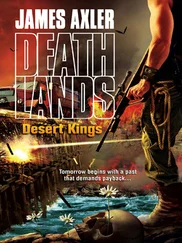“Now if you think about it, Mike,” he said, in the hearty manner of a general addressing his officers informally, “half the time your boys are sitting on their behinds. They’re on the clock whether they have anything to do or not.” The laser dot danced across the screen. “Now, with a private vendor, we can work it so we’re only paying ’em when they’re actually turning wrenches.”
“Well hell, how much cheaper you want it done?” Nacogdoches’s big paw lay still on the tabletop. “Half my guys’re on food stamps, that’s how well the state of Texas pays ’em to sit on their behinds.”
Before anyone could answer that, San Antonio chimed in. “Your private vendor. He gonna come out in the rain, in the middle of the night, when I got a loader broke down halfway to Uvalde?”
“Now that’s a fantastic point,” said Bob Wier, selfconsciously enthusiastic. “We’re real glad you brought that up, Tom.”
“The thing is,” said Nacogdoches, drumming his fingers again. Everyone else fell silent, leaving only the whirr of the laptop and the hum of the projector’s fan. The staticky heat off the projector’s bulb was beginning to cancel out the air-conditioning.
“I’m sure y’all put a lot of work on this.” He laid his hand on the copy of the RFP on the table before him; like the other managers, he had not touched it yet. “And I appreciate that.” He hefted the document and let it drop. “But don’t take a dog turd and dress it up like a popsicle and expect us to lick it.”
The room erupted in laughter, and Rick took the opportunity to suggest a coffee break. Bob Wier leaped up, switched on the lights, and offered to lead the managers to the coffeepot. Odessa, San Antonio, and J.J. followed him out, while Rick bounded off on his own. The Colonel switched off his laser pointer and clipped it back in his shirt pocket. He edged round the table and paused with his hand on the doorsill, as if he might say something to the Nacogdoches manager, but then he ducked his head and went out. Paul leaned across the table and switched off the hot bulb of the projector, then put the laptop on standby.
“You don’t say much.”
Paul glanced up. Nacogdoches still leaned back in his chair, his cowboy boot crossed over one knee, his hand still on the conference table. But now he was watching Paul, sizing him up.
“I’m, uh, just a temp.” He lowered the laptop’s screen and stood. He couldn’t think of anything else to say; he felt like a schoolboy waiting to be excused.
Nacogdoches nodded. “Why ain’t you teaching English someplace?”
Paul searched for an answer that excluded adultery and a drowned cat, then boiled it down to, “I got downsized.”
Nacogdoches jerked his head back and said, “ Downsized ?”
“Last teaching job I had was at the community college, but they had some budget cuts and I was low man on the totem pole, so. .”
“Huh.” Nacogdoches took another long, appraising look at Paul. “And now you’re. .” He fingered the edge of the RFP, flipping the pages with his broad thumb. Once again, Paul was speechless: No doubt Nacogdoches was thinking about his own guys about to be downsized, with Paul’s help. Paul swallowed; he heard a burst of male laughter from the coffee room. Nacogdoches pushed the RFP away from him. He drew a deep breath, drummed his fingers once, twice, three times. Then he let out a sigh and stood, rising to his full height.
“It’s a funny ol’ world, innit?” he said, and he walked out of the room.
THE MEETING LASTED UNTIL NEARLY LUNCHTIME, which meant Paul had to hustle to return the laptop and the projector to Building Services without losing any of his own lunch hour. Callie was no longer minding the sign-out sheet, so Paul returned the equipment to a large, red-faced gentleman named Ray (according to his ID badge) who was parked immovably behind the desk in the inner room. He blew out a sigh at the sight of the projector.
“Say, do me a favor, bud, and slide that thang up on the shelf, willya?”
“You’re kidding, right?” The shelf was shoulder high. Ray only shrugged, so Paul left the projector on the floor, and slid the laptop onto a lower shelf.
“By the way, that girl who was here before,” Paul said, signing the book. “She always work in here?”
“Callie?” said Ray from behind his desk.
“Is that her name?” said Paul, though of course he already knew it. “So does she? Work here? Usually?”
Ray pursed his lips and folded his doughy fingers over his spreading belly, a Buddha of bureaucracy, and he looked very significantly from the projector on the floor to the shelf where it belonged. Paul sighed and stooped and, remembering to lift with his legs, hoicked the damned projector up into its berth.
“Callie?” said Ray. “Sometimes she’s up here, sometimes she’s down in the mail room.”
“Okay,” said Paul breathlessly, his heart hammering from the effort. Thanks for nothing, he thought.
“Word to the wise, chief.” Ray dropped his voice. “She don’t like boys.” He was trying, at least, to give Paul fair exchange for his effort.
“That so,” said Paul.
Ray shrugged. “I’m just saying is all.”
After lunch the only landmark on the horizon was an RFP team meeting that Rick had called for four o’clock to evaluate the meeting with the maintenance managers. To make the time go faster, Paul thought of the day as the twentieth century. By ten o’clock of an eight-hour workday (not counting lunch), it was already 1925. World War I was over; the Russian Revolution had already occurred; The Wasteland and Ulysses had already been published; the Rite of Spring had already been performed; modernism was in full spate. By lunchtime, World War II was over; the bomb had been dropped; Milton Berle was already a television star. Sometimes it made the afternoon go faster to glance at the time and think, now the Beatles are on Ed Sullivan , now Jimmy Carter is president. But today, by half an hour after lunch, Paul realized that it was only March 1956. The Beatles haven’t even met each other yet, he groaned silently. Jesus Christ, I haven’t even been born yet.
He toughed it out until the Nixon administration and then decided to take his break. As a temp, he was entitled to two fifteen-minute breaks a day, one in the morning and one in the afternoon, which he usually stretched to half an hour each. Since he had missed his break this morning, thanks to the meeting, he figured he was due an hour this afternoon, though he doubted he could get away with it. Still he waited until Olivia was out of her cube so that she couldn’t note when he left, then he retrieved Seven Science Fiction Novels of H . G. Wells and went downstairs.
The lunchroom was usually empty at this hour of the afternoon. The lights had been dimmed and the sun was on the other side of the building, so Paul was able to read in a pleasant dusk, all alone amid the empty tables and chairs. As he came in, he passed Callie hurrying out, her arms crossed over her t-shirt, her hands rubbing her bare upper arms. She avoided his eye as she passed, hustling around the corner towards the mail room. As he headed towards the Colonel’s table in the corner — his usual seat during his breaks — he noticed that someone had left a fat book open on one of the tables against the window. A chair was still pulled out, and a half-empty bottle of Coke stood at a corner of the book. Was this Callie’s mystery volume, the one she hadn’t wanted him to see?
He weaved between the intervening tables and stood across the table from the pulled-out chair; the book was facing the other way. It was an enormous volume, the pages Bible thin and packed with tiny print. He glanced back at the doorway, then turned the book around. He lifted the cover and saw, to his astonishment, that it was The Norton Anthology of English Literature , volume 1. He stooped over the open pages and read a couple of lines of crowded print:
Читать дальше
